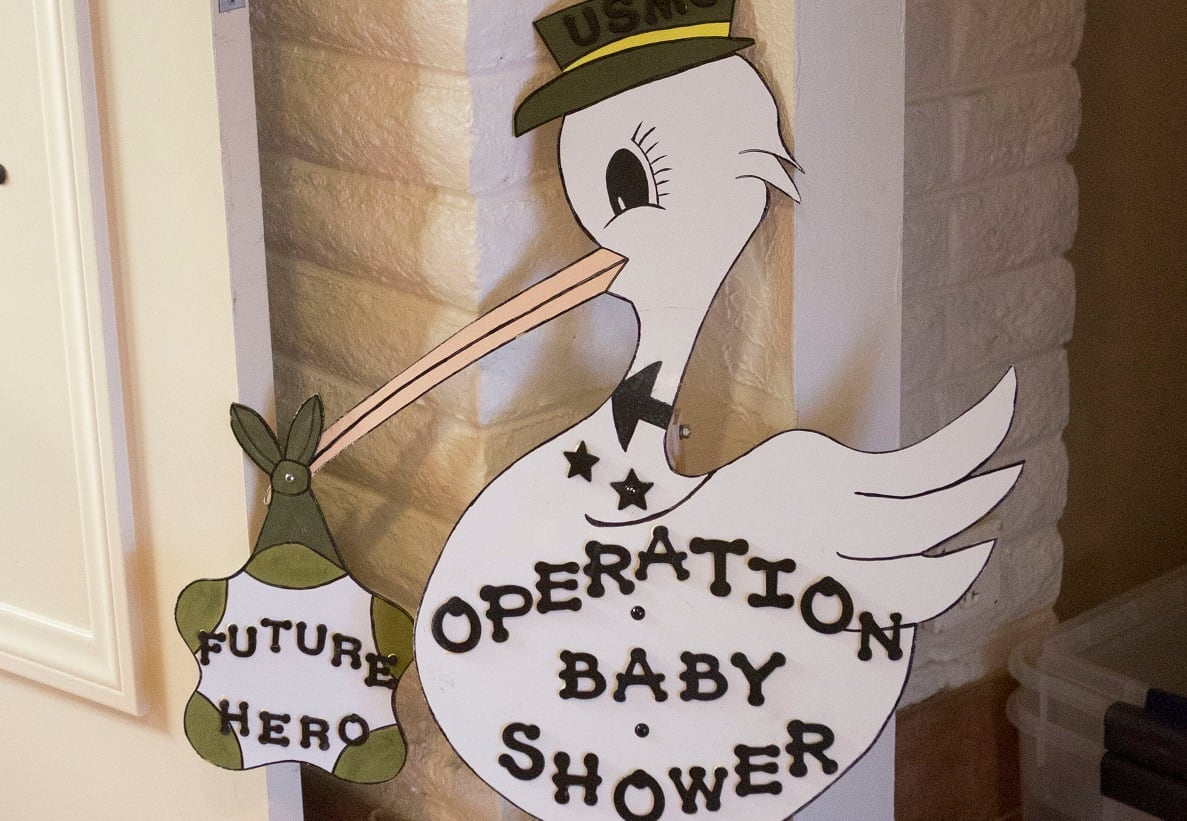The 1st Marine Logistics Group has launched a new program that hopes to make it easier for a Marine to be both a mom and a warrior.
The new Artemis program will allow Marines on Camp Pendleton, California, where the Marine logistics group is located, to join Artemis groups and work with an Artemis mentor, with the specific goal of making it easier for pregnant and postpartum Marines to receive base resources and know they are not alone.
“Over the past year we have recognized that there were a lot of great programs to help with our pregnant and postpartum Marines,” Brig. Gen. Roberta Shea told Marine Corps Times in a phone interview.
“We thought there’s probably a need for a rallying point where Marines and their leader could in a more centralized place, get information about these programs that were available, get support from one another and see how we could help these Marines sustain their readiness during their pregnancy,” she added.
RELATED

The program is named after the Greek goddess of the hunt and childbirth, a combination that made the name a great fit for the new program, Shea told Marine Corps Times.
“When we were looking for a name, we were looking for a historical or mythological figure that embodied the idea that you can be a tough warrior and a mom,” the Marine logistics group commander said. “Artemis being both the goddess of the hunt, and of maternal things was just a natural fit.”
So far the program has three Artemis groups (located on the 14 area, 22 area and 43 area of the California base) helping the just over 100 prenatal or postpartum Marines currently serving within the Marine logistics group, Shea said.
Though the Marine logistics group has launched the program, pregnant Marines from any of the other units stationed at Camp Pendleton, California, are welcome to attend the meetings, the Marine commander said.
‘Great Marines who are also great moms’
The program has started as the Marine Corps has put a larger emphasis on ensuring Marines are given more resources that allow them to maintain both their family and their careers.
“We should never ask our Marines to choose between being the best parent possible and the best Marine possible,” Marine Corps Commandant Gen. David Berger said in his planning guidance in 2019.
In early February the Marine Corps updated a policy order extending the time new moms have to recover from giving birth from nine months to a full year.
The Artemis program will help Marines get access to the resources at the Naval hospital and Marine Corps community service options already available to them, including resources that will help them create a personalized workout program to help them healthily get back to within Marine Corps standards.
“You’re going to talk about how you sustain your fitness and readiness through your pregnancy and then when you can expect to recover your operational readiness afterward,” Shea said.
The Marines in the program will be assisted by Artemis mentors, Marines who already have “had successful experiences being warriors and moms,” the commander said.
To become a mentor Marines on Pendleton should talk to the commanding officers sponsoring the Artemis groups or to the leadership of the 1st Marine logistics group.
“We have leaders who want to pass down their experiences,” Shea said of the “overwhelming” response from Marines trying to become mentors. “I have seen so many experiences during my career of great Marines who are also great moms.”
Marines on leave or deployed with the Marine logistics group will have the option of online classes and video chats with mentors, Shea said.
Though the program is targeted for Marine moms, a few dads have started showing up to events trying to learn, too.
“One of the really great things that we saw was there are a lot of new dads who are who are interested … to learn more about how they can be more effective supporters of their families,” Shea said. “That was an unintended consequence, but certainly we welcome the new dads as well.”
But Shea hopes any short-term readiness goals will be outstripped by the long-term effects of the program.
“One potential consequence of this effort, of this near-term investment, is that we have some long-term retention and that these Marines are able to envision a path for themselves as both warriors and parent,” she said.





